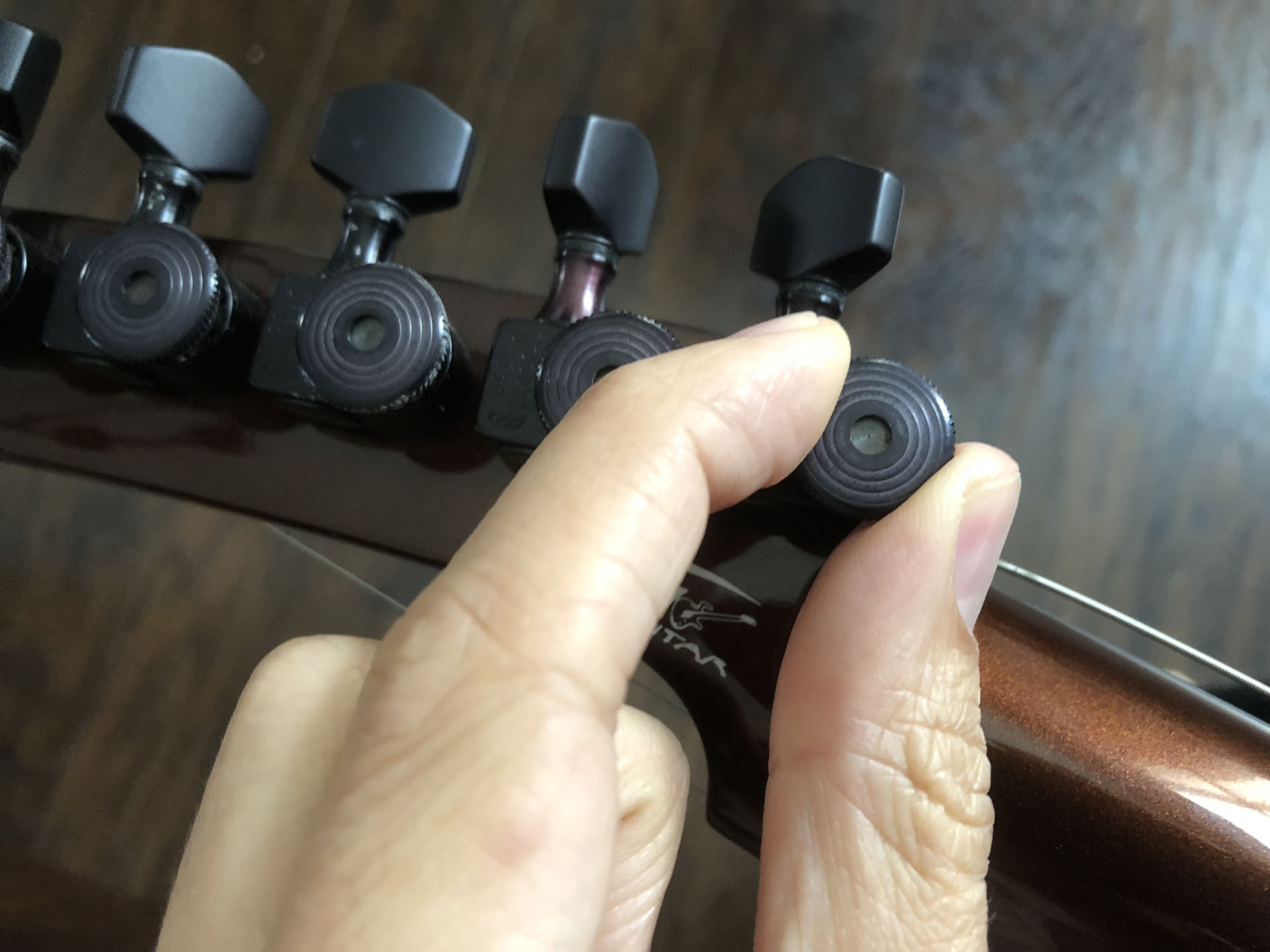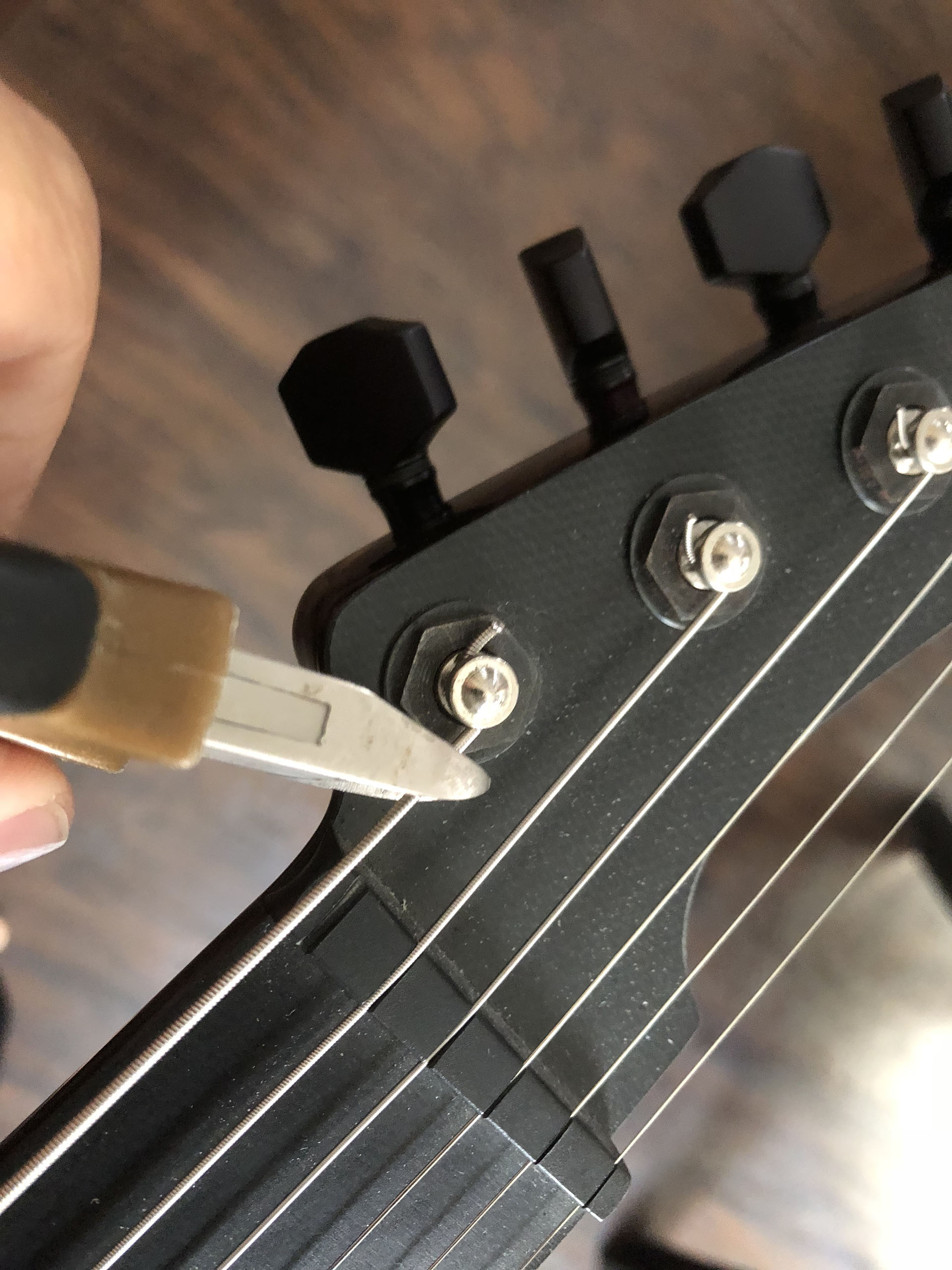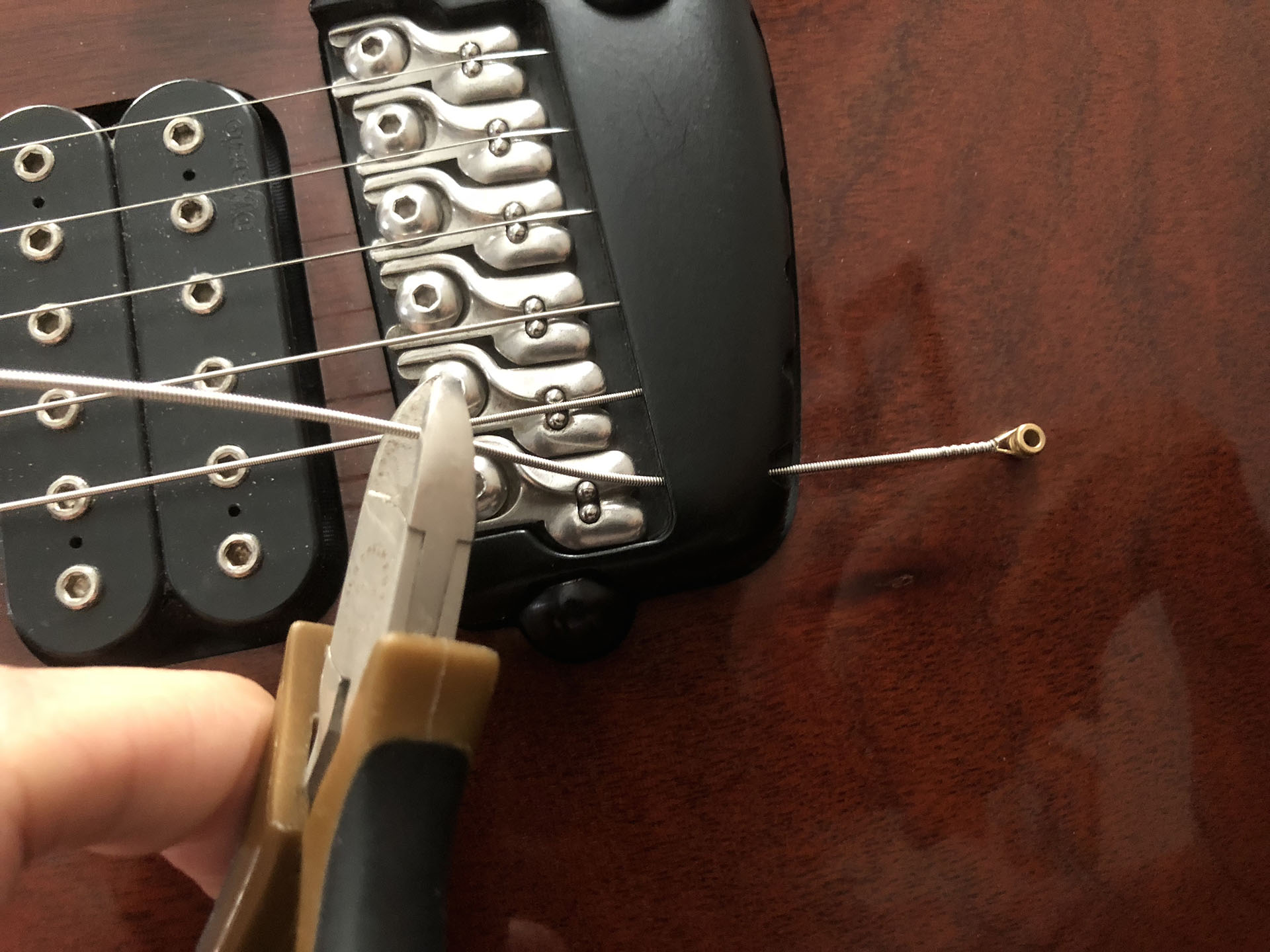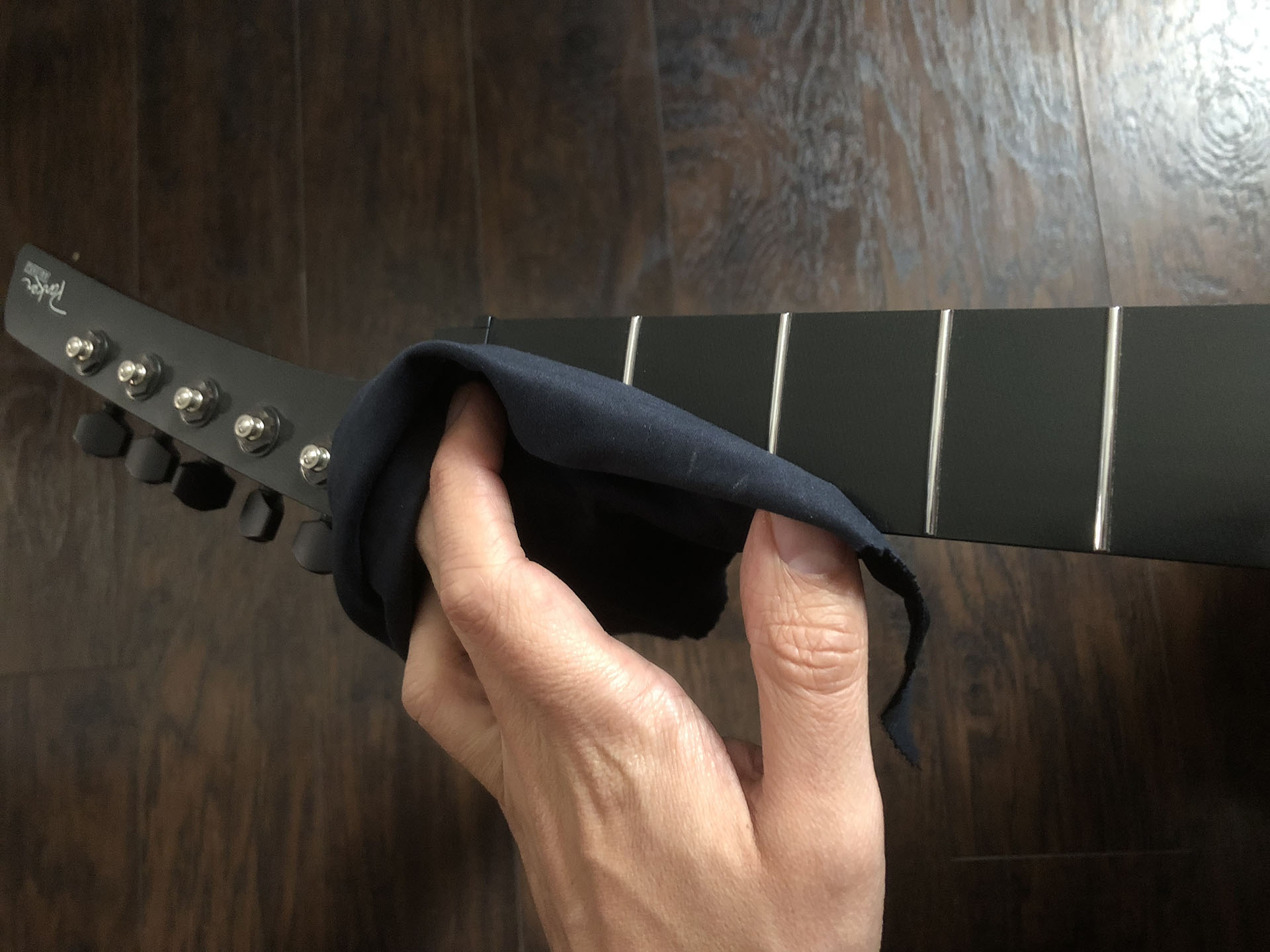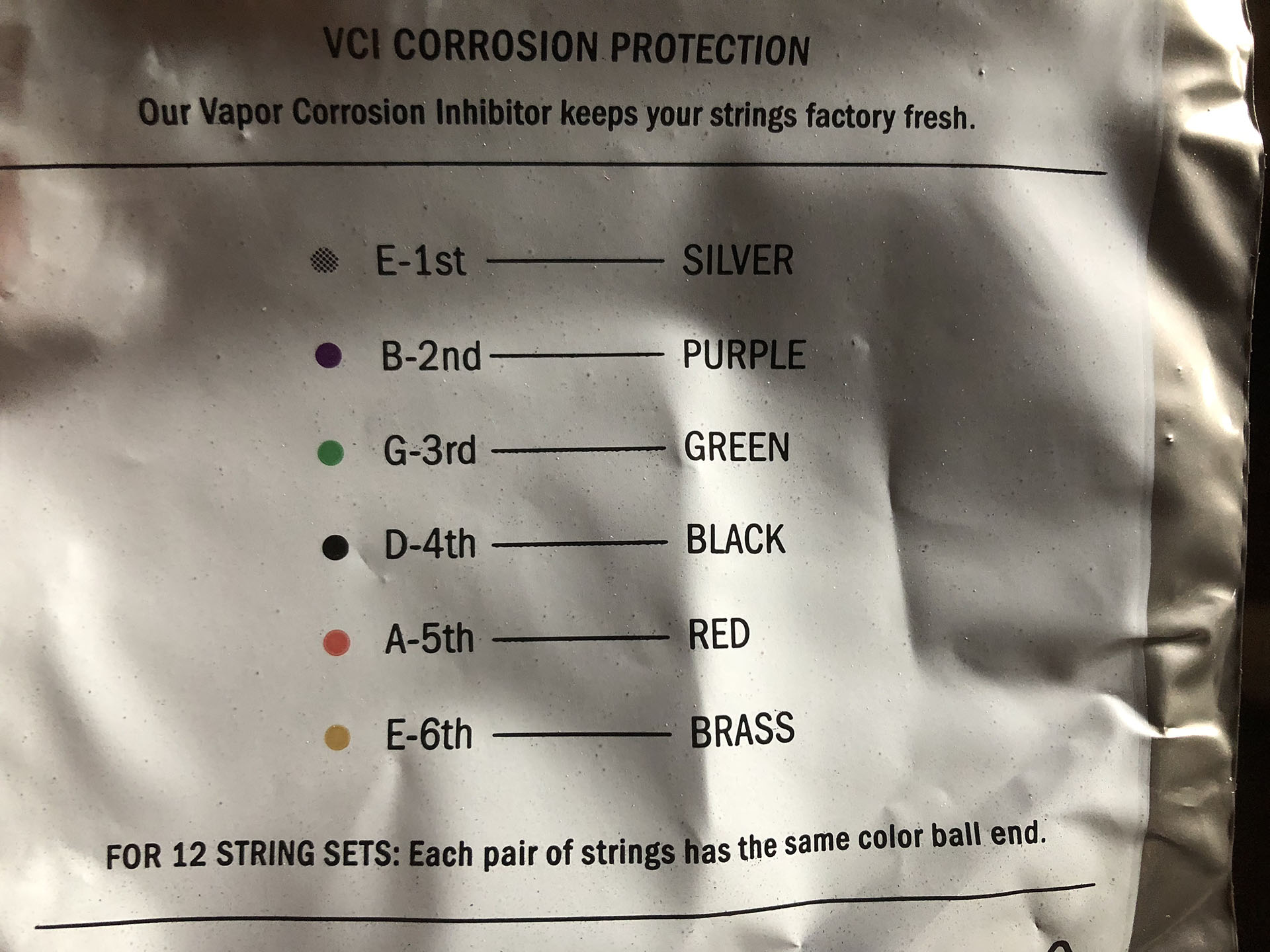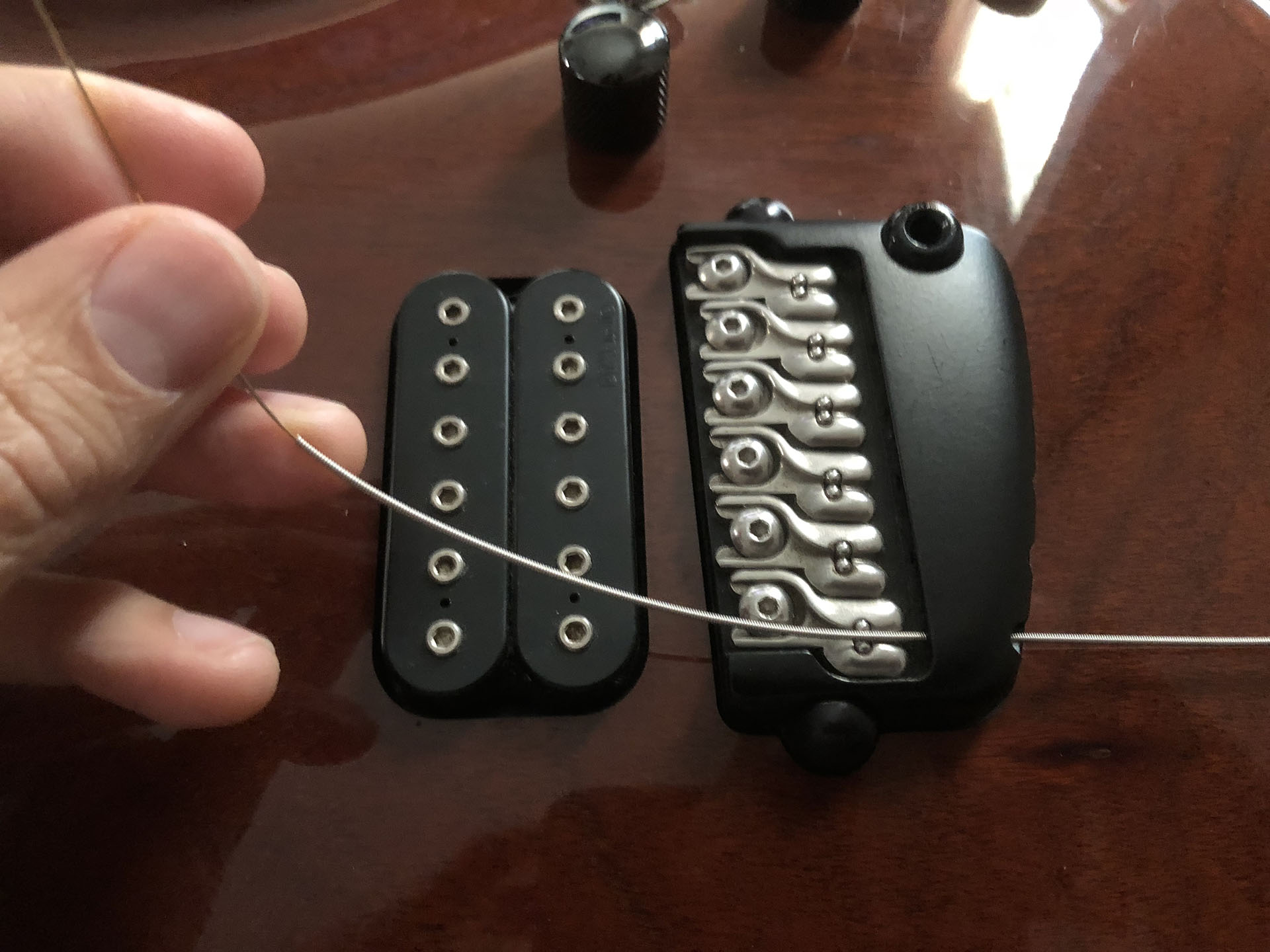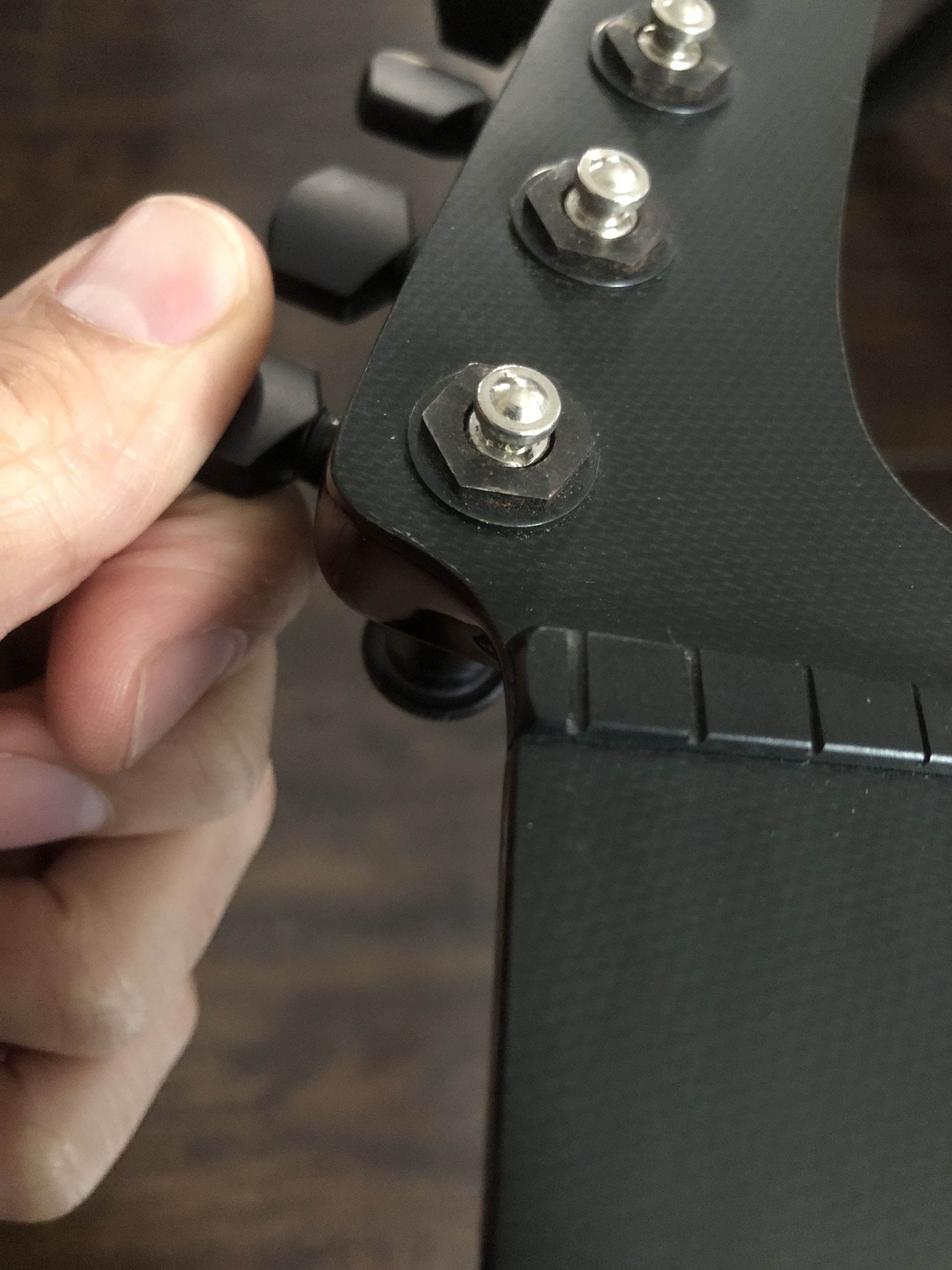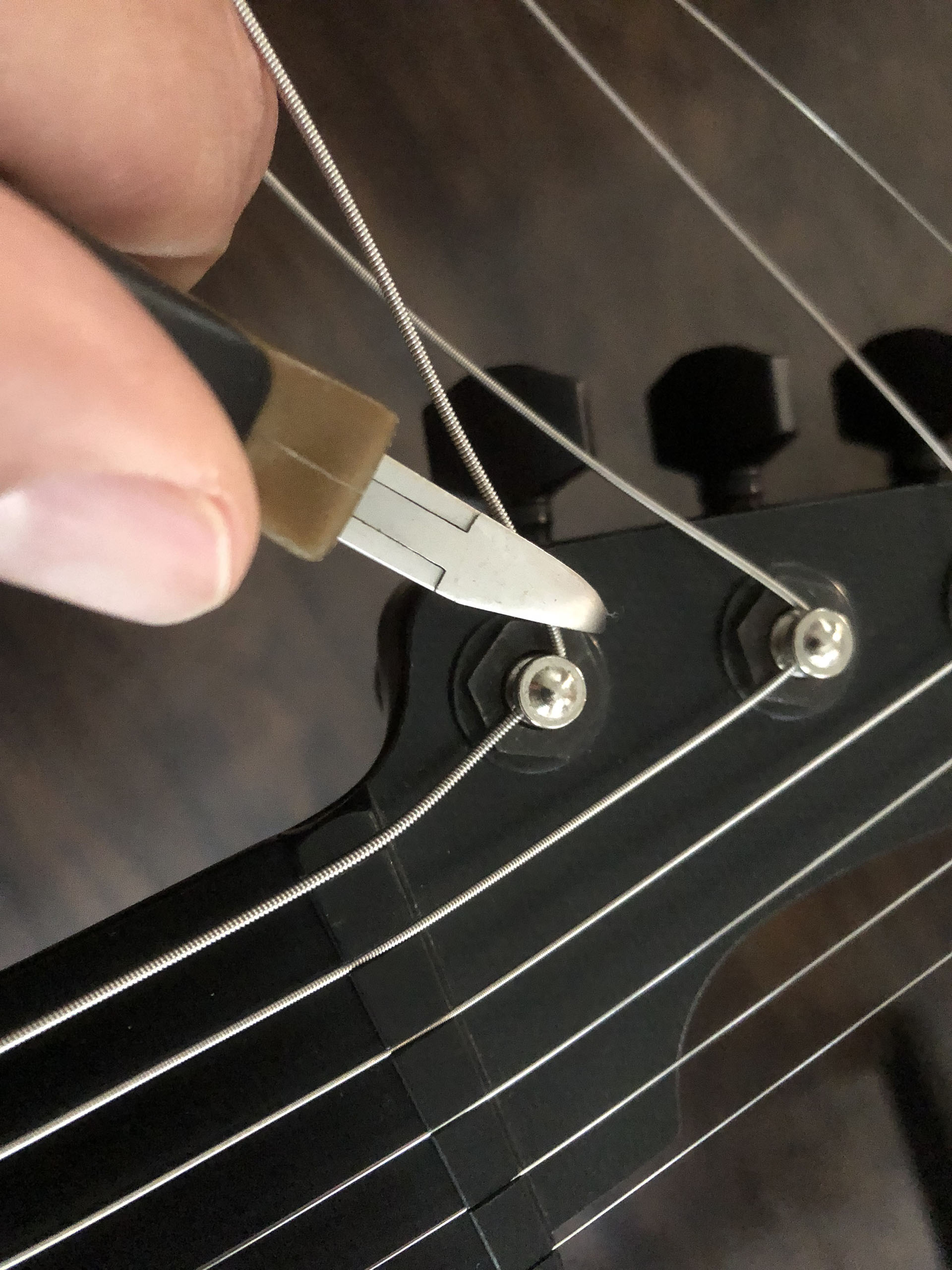How to Change a String (with Locking Tuners)
From vjmedia
Contents
- 1 How to Change a String (with Locking Tuners)
- 1.1 Remove the Old Strings
- 1.1.1 Detune the lowest string with the tuning peg until it drops as low as it can go
- 1.1.2 Loosen the locking mechanism on the back of the tuning peg as much as it will loosen
- 1.1.3 Carefully cut the end of the string with string cutters above the hex plate that holds the tuning peg into the headstock
- 1.1.4 Carefully pull the string out of the hole with needle-nose pliers (Do not use anything sharp!)
- 1.1.5 Gently push the string 1 inch through the hole of the bridge
- 1.1.6 Cut the string above the bridge
- 1.1.7 Very gently pull the remainder of the string through the bridge
- 1.1.8 Repeat the process for all other strings
- 1.1.9 Throw away the old strings including any clippings
- 1.1.10 Gently wipe down the fretboard and bodywith a dry microfiber cloth removing any dirt seen; do not use any solvents, oils, or other chemicals on the fretboard and do not scratch the fretboard
- 1.2 Put on the New Strings
- 1.2.1 Wash your hands with soap and water; dry your hands
- 1.2.2 Take the lowest string out of the new package of strings
- 1.2.3 Insert he new string through the hole of the bridge
- 1.2.4 Turn the tuning peg so that the hole aligns straight with the angle of the string
- 1.2.5 Put the string through the tuning peg hole
- 1.2.6 While pulling the string lightly, tighten the locking mechanism on the back of the tuning peg
- 1.2.7 Repeat the process for all other strings
- 1.3 Tune the New Strings
- 1.3.1 At the tuning peg, pull the excess string from the lowest string down to make a crease
- 1.3.2 Cut the excess string just above the hex plate that holds the tuning peg into the headstock
- 1.3.3 Tune the string to pitch
- 1.3.4 Repeat the process for all other strings
- 1.3.5 Tune all string to pitch from lowest to top until all strings are in tune
- 1.1 Remove the Old Strings
How to Change a String (with Locking Tuners)
Important: Go slowly with every part of this process in order to risk damaging the instruments, cutting yourself, or poking your eye out with an old guitar string.
Remove the Old Strings
Detune the lowest string with the tuning peg until it drops as low as it can go
The media player is loading...
Loosen the locking mechanism on the back of the tuning peg as much as it will loosen
Carefully cut the end of the string with string cutters above the hex plate that holds the tuning peg into the headstock
Carefully pull the string out of the hole with needle-nose pliers (Do not use anything sharp!)
Gently push the string 1 inch through the hole of the bridge
Cut the string above the bridge
Very gently pull the remainder of the string through the bridge
Repeat the process for all other strings
Throw away the old strings including any clippings
Gently wipe down the fretboard and bodywith a dry microfiber cloth removing any dirt seen; do not use any solvents, oils, or other chemicals on the fretboard and do not scratch the fretboard
Put on the New Strings
Wash your hands with soap and water; dry your hands
Take the lowest string out of the new package of strings
Insert he new string through the hole of the bridge
Turn the tuning peg so that the hole aligns straight with the angle of the string
Put the string through the tuning peg hole
While pulling the string lightly, tighten the locking mechanism on the back of the tuning peg
Repeat the process for all other strings
Tune the New Strings
At the tuning peg, pull the excess string from the lowest string down to make a crease
The media player is loading...
Cut the excess string just above the hex plate that holds the tuning peg into the headstock
Tune the string to pitch
Repeat the process for all other strings
Tune all string to pitch from lowest to top until all strings are in tune
